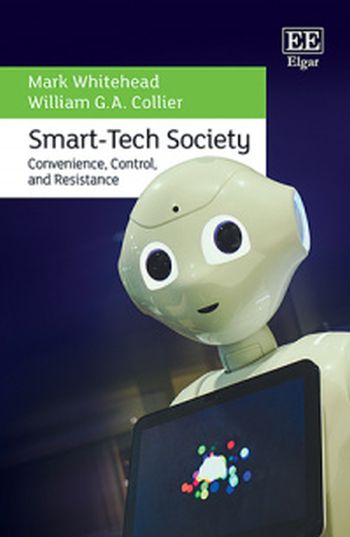
Informed by the latest theoretical developments in studies of the social impacts of digital technology, Smart-Tech Society provides an empirically grounded and conceptually informed analysis of the impacts and paradoxes of smart-technology.
While making life more convenient, smart-tech has also been associated with a loss of privacy and control over decision-making autonomy. Mark Whitehead and William Collier provide a critical analysis of the lived experience of smart-technology, presenting stories of varied social engagements with digital platforms and devices. Chapters explore the myriad contexts in and through which smart-tech insinuates itself within everyday life, the benefits it brings, and the processes through which it is being resisted. Detailed case studies explore the impacts of smart-technology across a broad range of fields including personal health, work, social life, urban management, and politics.
Presenting new empirical evidence and analytical perspectives on the relationships between humans and smart-tech, this book will be of interest to academics and students in the fields of sociology, political science, human geography, and technology studies.